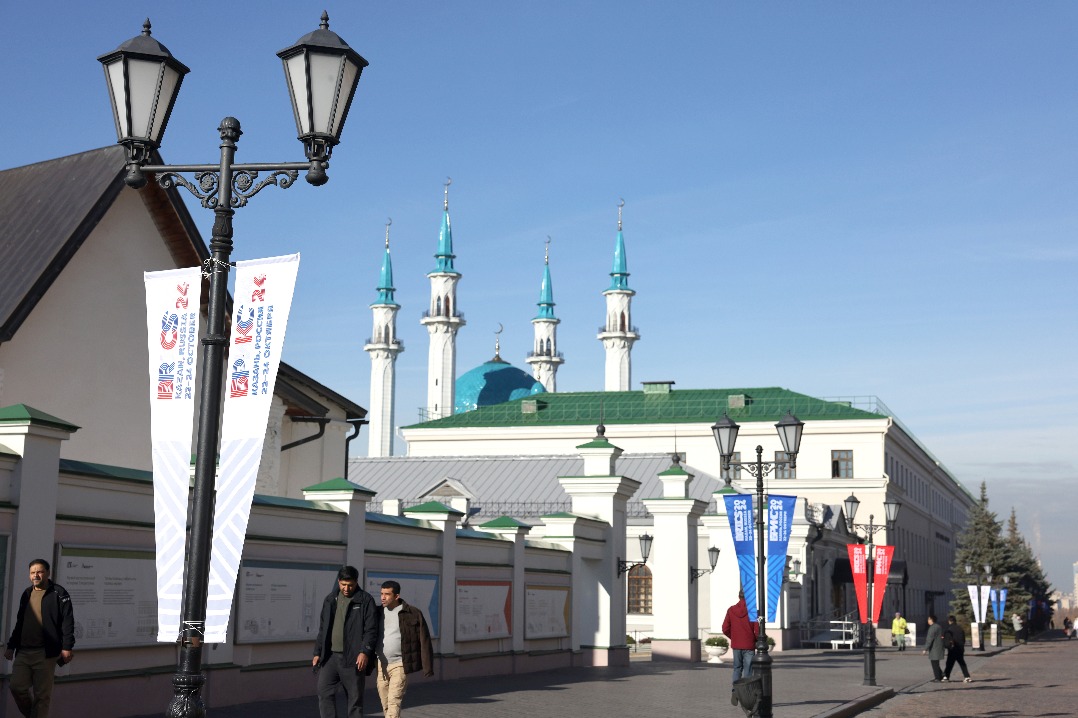China right to pursue its modernization path


As the founding fathers of the United States declared, all men are created equal, that they are endowed by their creator with certain unalienable rights, that among these are life, liberty and the pursuit of happiness, and that to secure these rights, governments are instituted among men, deriving their just powers from the consent of the governed.
In other words, the fundamental reasons a government is formed include providing the people of the country safety and security, fostering the country's economic development to produce benefits for all and facilitating social development to ensure a greater sense of happiness.
But how well have Western-style democracy and socialism with Chinese characteristics delivered these benefits to the people?
China launched reform and opening-up in 1978, but the growth of the Chinese economy in the past more than four decades has been beyond all expectations, perturbing the US-led West. China has lifted more people out of poverty than any other country in history in the shortest time. In just a matter of four-plus decades, about 800 million people in China have been lifted out of extreme poverty.
Modern China's economic development has vastly outpaced that of the US, with the growth of the Chinese economy being phenomenal. In fact, according to London-based World Economics estimates, China's economy is 33 percent bigger than the US' (in GDP purchasing power parity terms).
When one thinks about how big the US economy was compared to China's in 1978, the questions that arise are: Which economic system has produced more benefits for the common people? Which political system has been economically more successful?
Certain Western critics persist in characterizing the CPC's governance as "authoritarianism" instead of "democracy".
But in doing so, those critics forget that only 63 million people elected Donald Trump as US president in 2016. As a matter of fact, an analysis of voter data shows quite a sizable percentage of US citizens see the elections as a mandatory public exercise. For example, while the 2020 US presidential election saw the highest voter turnout since 1900, even with the aberrant boost, only about 37 percent of the US population voted that year and in the midterm elections in 2022. Does the US democracy truly represent the majority of US citizen's rights and opinions?
The other important question is: The "social fabric" developed by which political system is better, the US' or China's?
There may not be a single criterion to measure the social health or social cohesion of a country. But individual metrics do provide some insight into a country's social health. One criterion to measure a country's social health is what percentage of its population is in prison. While the US has about 1.8 million people in prison, China, with four times the US' population, has only 1.7 million people behind bars.
In terms of public safety and security, China has a much safer environment than the US no matter which metric you use to measure the situation. Not only is the rate of homicide but also that of other crimes in the US higher than in China.
Besides, the advent of the internet has created unprecedented opportunities for communication and dissemination of misinformation, and the US has done a most unsatisfactory job of addressing the social divisions stoked by deep fakes and false narratives.
Instead of curbing such crimes and offenses through centralized and effective control, the US has balkanized the problem by allowing private enterprises to provide internet content and services without strict management, including false and damaging content. Everyone agrees there have to be some laws or rules to regulate the internet. Why does the US perceive its more relaxed governance, which can foster environments conducive to violence and crime, as superior?
It is clear therefore that the Chinese political system has been far more successful than the US system in delivering government benefits to the average citizen.
The Third Plenary Session of the 20th Central Committee of the CPC, to be held in Beijing from July 15 to 18 under the theme of further comprehensively deepening reform and promoting Chinese modernization, will likely encourage people to embark on a new journey of Chinese modernization, in order to improve people's well-being and promote social equity.
The author is a professor at the Institute of Chinese Marxism, Shanghai Academy of Social Sciences. The views don't necessarily reflect those of China Daily.
If you have a specific expertise, or would like to share your thought about our stories, then send us your writings at opinion@chinadaily.com.cn, and comment@chinadaily.com.cn.
































